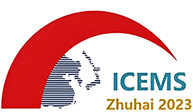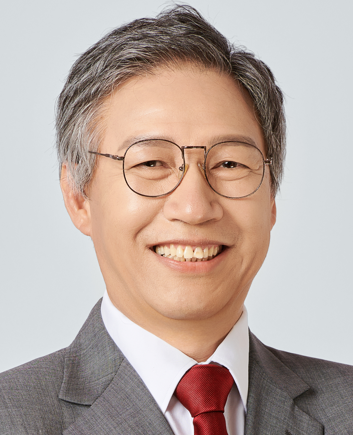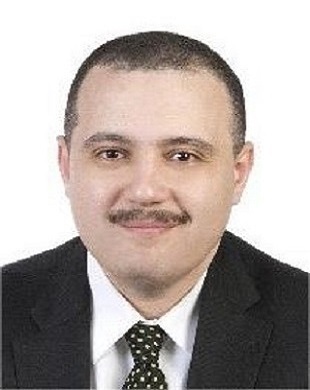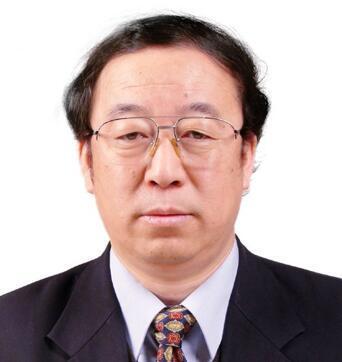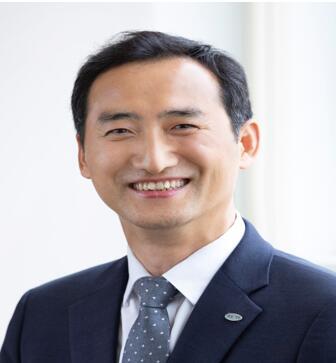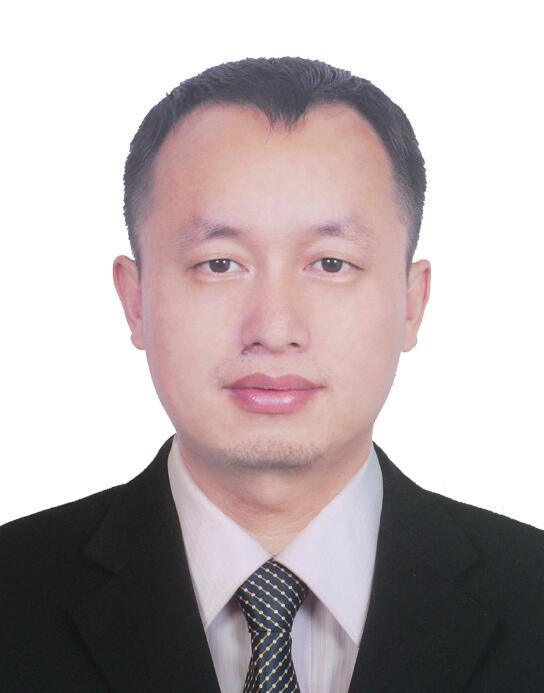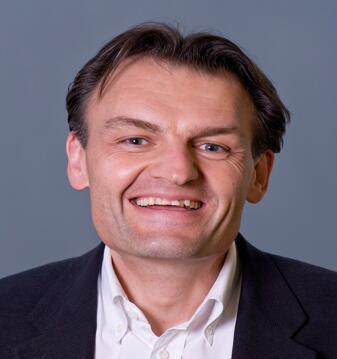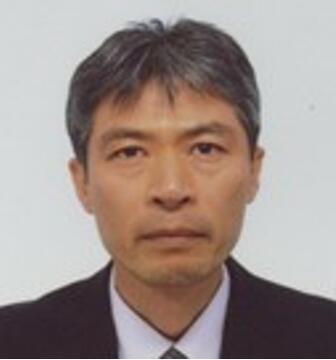Keynote Speakers
University of Sheffield, UK
read more
Biography
Professor Z.Q. Zhu is the Head of the Electrical Machines and Drives Research Group at the University of Sheffield, UK, the Royal Academy of Engineering / Siemens Research Chair Professor, and the Founding Director of several industrial research centres, including Siemens and Midea.
His current major research interests include design and control of permanent magnet machines and drives for applications ranging from electrified transportation through household appliances to renewable energy.
He is a Fellow of Royal Academy of Engineering, IEEE, IET, and CSEE, and the Editor-in-Chief of IET EPA. He is the recipient of the 2021 IEEE Nikola Tesla Technical Field Award and the 2019 IEEE Industry Application Society Outstanding Achievement Award.
Lecture Summary
Permanent magnet (PM) machines exhibit high torque density and efficiency. While integer-slot interior PM machines with overlapping windings have been extensively employed in electric vehicles, fractional-slot PM machines are now widely used in servo systems, robots, and household appliances, etc. This keynote speech will focus on the recent developments in novel fractional-slot PM machines. The history of fractional-slot PM machines will be briefly reviewed. The field modulation and magnetic gearing effects in torque production, including conventional fractional slot PM machines, vernier PM machines, and fault-tolerant PM machines, will be discussed and analysed. Novel modular structures will be introduced. Parasitic effects, such as manufacture and operation tolerances, unipolar axial flux leakage, voltage spikes, losses, and noise and vibration, will be highlighted.
Marquette University
read more
Biography
Ayman M. El-Refaie received the M.S. and Ph.D. degrees in electrical engineering from the University of Wisconsin Madison on 2002, and 2005 respectively. Between 2005 and 2016 he has been a principal engineer and a project leader at the Electrical Machines and Drives Lab at General Electric Global Research Center. His interests include electrical machines and drives. Since January 2017 he joined Marquette University as the Werner Endowed Chair for Energy Sustainability. He has over 200 journal and conference publications. He has 48 issued US patents.
At GE, he worked on several projects that involve the development of advanced electrical machines for various applications including, aerospace, traction, wind, and water desalination. He was the chair for the IEEE IAS Transportation Systems committee and an associate editor for the Electric Machines committee. He was a technical program chair for the IEEE 2011 Energy Conversion Conference and Exposition (ECCE). He was the general chair for ECCE 2014 and 2015 ECCE steering committee chair. He was the general chair of IEMDC 2019. He was the IEEE IAS Industrial Power Conversion Systems Department. He was the IAS Publications Department Chair He is currently serving as IAS president-elect . He is an IEEE Fellow and a member of Sigma Xi He received several prestigious awards including the IEEE IAS Industrial Power Conversion Systems Department Gerald Kliman Innovator Award and the 2022 ICEM Arthur Ellison Achievement Award. He is the recipient of three paper awards.
Lecture Summary
This presentation will cover the design and analysis details of a high-specific power 250 kW direct-drive electric drivetrain system intended for hybrid/electric propulsion applications. The system includes a motor equipped with additively-manufactured hollow windings integrated with heat pipes, a tightly integrated modular power electronics and a shared thermal management system. The tradeoff studies and optimization of the motor design will be presented. Details of the electromagnetic, thermal and mechanical analysis will be covered. Sub-components characterization including thermal and electrical characterization of the additively-manufactured coils, heat pipes, and motorette will be also presented, In addition details about the drive design and the overall system integration and cooling options will also be presented.
Biography
Prof. Dianguo XU, received Master and Doctor Degrees from Harbin Institute of Technology (HIT), Harbin, China, in 1984 and 1989, respectively, all in Electrical Engineering. In 1984, he joined the Department of Electrical Engineering, HIT as an assistant professor. He later became a lecturer and associate professor in 1987 and 1990 respectively. Since 1994, he has been a professor in the Department of Electrical Engineering, HIT. He was the Department Head from 1992 to 1998, Dean of School of Electrical Engineering and Automation from 1998 to 2010. Vice president of HIT from 2010-2021. Professor Xu is now the Vice president of China Electrotechnical Society (CES). He is a Fellow of IEEE and Chair of IEEE Harbin Section, Co-Editor-in-Chief of IEEE Transactions on Power Electronics, Associate Editors of IEEE Transactions on Industrial Electronics and IEEE Journal of Emerging and Selected Topics in Power Electronics. He is the technical program chair of IEEE VPPC2008 and IPEMC2012-ECCE Asia, general chair of ITEC AP 2017 and ICEMS 2019. His research interests include ac motor drives, motion control, power electronics converter-based power system, appliance intelligent control, wireless power transmission, and lighting electronics etc. He has authored and co-authored 6 books and published over 500 technical papers. He holds 60 China patents. He was awarded as Delta Scholar in 2006. He received 2018 IEEE IAS Outstanding Achievement Award.
Lecture Summary
According to the latest development of motor drives, power density, reliability and life time have become key issues which have gained more and more attentions in industry and academia. Generally, electrolytic capacitors are used in the DC-link of drive to maintain a flat DC-link voltage. By replacing large volume electrolytic capacitors with slim film capacitors in the DC-link can increase reliability and life of the motor drives, which is so-called electrolytic capacitorless motor drives. Meanwhile, the power density of the drive can increase since the capacitance is reduced to about 1/20 of the original value. So, electrolytic capacitorless motor drives are preferred in aerospace, national defense industry and high-quality household appliance. This presentation focuses on the recent advancements in electrolytic capacitorless PMSM drives. An overview of the challenges in this field is revealed, including voltage utilization improvement and current harmonics suppression under large fluctuated DC-link voltage, stability issue caused by LC resonance, DC-link overvoltage in regenerating operation. As a new trend of motor drives, the control techniques are urgently to be broken through to promote the application of electrolytic capacitorless PMSM drives.
Korea Electronics Technology Institute
read more
Biography
In-Soung Jung was born in Korea. He received the B.S., M.S. and Ph.D. degrees in electrical engineering from Hanyang University, Seoul, Korea, in 1993, 1995 and 2000, respectively. Since 2000, he has been with the Korea Electronics Technology Institute (KETI) in Bucheon and Seongnam, Korea. He was the director of the Intelligent Mechatronics Research Center of KETI until 2018. His main research areas were electromagnetic design of electric machines and motor control. Since 2020, he has been working as Vice President of the Smart Energy & Manufacturing R&D Division of KETI. His main research areas are the fields of improving energy efficiency based on IT technology, development of next-generation secondary batteries and photovoltaic module, green hydrogen production, and digital transformation for smart manufacturing. He is a senior member of the KIEE and IEEE.
Lecture Summary
In order to cope with climate change, Korea is making great efforts to achieve carbon neutrality by 2050. We are working to reduce the amount of traditional fossil fuel generation and increase the amount of renewable energy generation, and to reduce carbon emissions in the mobility sector through the development and spread of electric vehicles. In addition, we are striving to reduce energy consumption by improving the efficiency of industrial and household devices and managing energy demand.
KETI (Korea Electronics Technology Institute) is a research institute that develops various industrial technologies in the field of electronics and electricity. One of KETI's key research areas is energy technology for Net-Zero. KETI is developing photovoltaic and wind power technologies to expand renewable energy, electrification technologies for mobility, high-efficient industrial motors and power converters, and energy demand management using IT technology. In this speech, I would like to introduce this R&D status of KETI.
Gree Electric Appliances, lnc. of Zhuhai Co., Ltd.
read more
Biography
Yusheng Hu , Ph.D., professor-level senior engineer, obtained bachelor, master and Ph.D. degree of Electrical Engineering from Harbin Institute of Technology. Since joining Gree in 2004, he has been engaged in high-efficiency energy-saving motors, magnetic bearings, compressors, high-end intelligent equipment and other technology development and product innovation. Currently, he serves as the Deputy Director of the State Key Laboratory of Air-Conditioning Equipment & System Energy Conservation, Standing Director of China Electrotechnical Society and Director of the Guangdong Provincial Key Enterprise Laboratory of High-speed Energy-saving Motor System, taking a technical leadership role of electrical motor systems, compressors and intelligent equipment of Gree. In the aspect of science research, he has led the team to obtain 7 international leading achievements in the fields of compressors, motors and magnetic bearings. As a result, he was awarded the following honor as the National 10,000 People Program Young Science and Technology Innovation Leading Talents, State Council Government Special Allowance Experts, Outstanding Engineer Youth Award and Guangdong Province Outstanding Inventor Award,special prize of science and technology of Guangdong Province, the first prize of scientific and technological invention of China machinery industry, the special prize of technical invention of China Refrigeration Society, the silver award of China patent, and the gold medal of Guangdong patent. What’s more, as part of his academic achievements, 10 motor standards were formulated, 300 authorized invention patents were obtained in China, Europe and the United States. In addition, he has published 40 papers and won the 2018 ICEMS Best Paper Award.
Lecture Summary
30~40% of the global energy consumption is used for buildings, and about 50% of the energy consumption of buildings is consumed by air conditioning equipment. So the energy efficiency of air conditioning equipment is of great significance for controlling global greenhouse gas emissions and achieving sustainable human development. Traditional motor systems for refrigeration compressors require complex bearing lubrication systems, which are inherently costly and inefficient. Magnetic bearing technology uses electromagnetic force to stably suspend the shaft in space, realize frictionless and high-speed operation of the shaft. It has the characteristics of energy saving, maintenance-free and low noise, which is an important research direction in the field of motors. In this keynote speech, the research and development process of magnetic bearing technology in the field of refrigeration compressor is first introduced. Then the key technology of high-speed magnetic bearing motor system in refrigeration compressor is shared. And finally the frontier direction of magnetic bearing technology in motor systems is prospected.
ETH Zurich / Power Electronic Systems Laboratory
read more
Biography
Johann W. Kolar, Fellow of the IEEE, an International Member of the US NAE and a Full Professor and Head of the Power Electronic Systems Laboratory at the Swiss Federal Institute of Technology (ETH) Zurich. He has proposed numerous novel converter concepts incl. the Vienna Rectifier, has spearheaded the development of x-million rpm motors, and has pioneered fully automated multi-objective power electronics design procedures. He has supervised 88 Ph.D. students to completion, has published 1000+ IEEE journal and conference papers, 4 book chapters, and has filed 200+ patents in the course of international industry research collaborations incl. 190 granted patents (44 international/WO patents, 28 US patents, 100+ patents in various European countries). He has served as IEEE PELS Distinguished Lecturer from 2012 - 2016. He has received numerous awards incl. 45 IEEE transactions and conference Prize Paper Awards, the 2016 IEEE William E. Newell Power Electronics Award, and 2 ETH Zurich Golden Owl Awards for excellence in teaching. The focus of his current research is on ultra-compact/efficient WBG converter systems, ANN-supported multi-objective design procedures, Solid-State Transformers, ultra-high speed drives, bearingless actuators, and life cycle analyses of power electronics converter systems.
Lecture Summary
The transformation of the fossil-fuel-based energy system into a new net-zero-CO2 all-electric system will rely on a massive extension of the electric grid infrastructure and a massive installation of power electronic converters and energy storage systems. However, assuming a typical lifetime of 20 years, converter systems installed today will need to be replaced already by 2050, i.e., at the commonly accepted date for reaching the net-zero-CO2 target. Given the scale of the future Internet of Energy, the maintenance or replacement effort at some point will potentially run into depletion of scarce raw materials and cause large volumes of waste and associated environmental problems. This clearly indicates that established power electronics design procedures focused on maximum power density or maximum efficiency are not sufficient, or, in short, “Energy Efficiency is NOT Enough”, and underlines the urgency of a transition from a linear economy to a circular economy, which ensures that the net-zero-CO2 target is reached on a sustainable basis, i.e., with minimized environmental impact in all aspects.
The talk will first discuss the fundamental importance of power electronics in the decarbonization and/or defossilization of the global energy system, also in the context of energy independence. Next, a life cycle carbon footprint analysis of two PV inverters showing very similar CEC efficiencies but employing different power semiconductor technologies and circuit topologies will be performed, which reveals widely varying results depending on the data sources used for the analysis. Next, the utilization of design space diversity for minimizing the carbon footprint and general environmental impact of a three-phase AC/DC converter building block will be demonstrated and characteristic relations and trade-offs of designs, solely limited to functional aspects like rated power efficiency or, alternatively, considering the whole life cycle, will be presented in the form of Pareto fronts. Finally, a roadmap for the introduction of environmental awareness into the power electronics design process will be proposed in order to ensure that power electronics as the main enabler of a net-zero-CO2 society reaches full compatibility with a circular economy at the earliest point in time possible.
Tokyo University
read more
Biography
Kazuto Sakai ,received Dr. Eng. degree from Yamaguchi University, Japan. He joined Toshiba Corporation, Research and Development Center from 1983-2009. He joined Toyo University, Japan in 2010, where he is a Professor. His technical efforts have included the research of variable speed motor drive systems.
Lecture Summary
We developed IPM motors with V-shaped PM arrangement and variable-flux IPM motors capable of varying a magnetization in PMs to operate a high power-density and high efficiency for electric vehicles. Also, we have proposed a magnetic resonant coupling machine with an air-gap winding capable of producing a high power in a light weight for electric aircraft. We will introduce these variable-speed motors.
